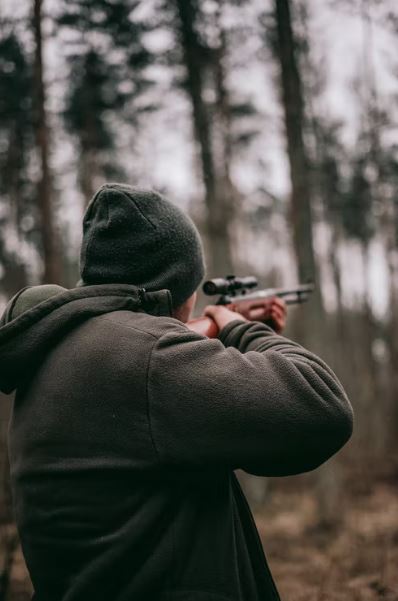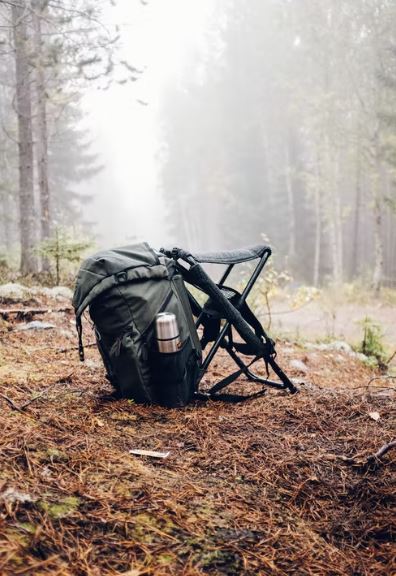Guns and other hunting gear require careful storage and cleaning after the hunting season. In addition to preventing theft and misuse, proper gun maintenance shields against corrosion and other types of damage. Because expensive hunting gear and firearms represent significant investments, it’s critical to safeguard your property.
When you pull your equipment out at the start of the following season, the right storage plan can make a significant difference. Before storage, every item should be cleaned, but how you clean them and safeguard them from further damage also matters. Unprotected storage containers may become contaminated by odors, moisture, and temperature-related deterioration. Here are some additional maintenance tips for your power tools.
Carefully Inspect Your Equipment
You probably learned to check your equipment for damage before and after each use if you took a hunter education course. Make it a habit to carefully inspect every item before you leave the house or before you store the equipment, especially if the season is coming to an end. You can make repairs as soon as you discover damages or missing components. This entails checking your hunting gear, such as clothing, firearms, scopes, backpacks, cases, and more.
Making it a habit to inspect your gear after each use will prevent you from having to leave for the field without some of it, or worse, from using damaged gear, which could lead to more issues. Repairing or replacing the item before you leave for a trip will also prevent you from having to leave home without some of your gear.
Dry and Wash Your Hunting Uniform
Although it may seem obvious, there is a good reason to frequently wash and dry your hunting clothes: to keep them from absorbing a human scent that might alert game while you are out hunting.
To avoid picking up a scent, wash your hunting gear with the appropriate materials and techniques. The best kind of detergent is one that doesn’t have any scent and doesn’t have any UV or optical brighteners that make whites appear brighter. To avoid smelling like the washer and dryer, you could hand wash your hunting clothes in a plastic bucket and hang them outside to dry.
If you choose to wash your hunting clothing in the washing machine, make sure to thoroughly clean the washer and dryer first to remove any fabric softener and regular laundry detergent odors. The scent should be eliminated using a damp rag dampened with vinegar or a baking soda and water solution, followed by a rinse.
Down-filled clothing, such as sleeping bags, jackets, and vests, needs to be handled with extra care. Dry them on medium heat while adding two or three tennis balls. After being cleaned or washed, the balls will assist in bringing the down fluff back up and redistributing it. All hunting clothing should be clean and dry before being stored in a sealed plastic bag to prevent them from absorbing smells from the environment.
Disinfect Everything You Wear
Calls and scopes should be disinfected frequently. This keeps them clean, which ultimately enables them to last longer, as well as killing most of the bacteria that are on them.
Maintaining and Cleaning Your Hunting Knives
It’s critical to perform routine maintenance on your military or hunting knives to keep the blades sharper for longer. The longevity of your equipment will be greatly increased by having the proper tools in your garage. After each outing, wash them with soap and water, then dry them with a soft cloth. If you notice any minor flaws in the blade, check it for nicks or chips and use a stone to sharpen the knives. If the knife has a rusty blade or a wooden handle, lightly oil them both.
Additionally, you can use a cork as a soft scrub sponge to gently scrub any blood or strong rust stains with salt and vinegar. The knife should be thoroughly washed, dried, and stored in a protective sheath after being completely clean and sharpened. Put your hunting knives in a plastic bag with desiccant to keep them dry when storing them for the season.
Batteries Should Be Removed from Electric Hunting Hardware
Over time, batteries frequently corrode. A corroded battery may harm an electronic device if you forget to take it out of your radios, walkie-talkies, or flashlights. The batteries’ lifespan may be extended by removing them. Even when not in use, some devices constantly use power, especially if they have a screen or display. This causes the batteries to deplete more quickly. In case you need to replace the batteries while out in the field, keep extra batteries in your hunting pack.
Gun Cleaning for Storage
Guns are probably the most expensive items in your inventory, and they also require the most delicate storage. Even though guns are protected against rusting, they still require proper maintenance to prevent parts from sticking to one another.
For comprehensive, step-by-step instructions on how to clean your firearm using common tools like bore brushes and rods, consult your owner’s manual. For thorough cleaning of the gun’s components and the removal of soil and debris, use a premium ammonia-free solvent. Never touch cleaned gun parts with your hands as the oil from your hands can also cause rusting.
Wax wood stocks to keep them dry and apply a very thin layer of lubricant to the bore and other metal parts of the firearm. Keep the gun decocted to reduce stress on the springs and extend their life.
Selecting the Ideal Safe for Your Hunting Gear
For their first purchase, first-time gun owners might try to select a smaller, less expensive safe. The amount of space they require is typically underestimated as a result of this. Since ammunition should be stored in the safe, so should spare parts and optics. It is preferable to estimate the space needed as being excessive.
Numerous gun safes employ keypads with pre-programmed or programmable passcodes. Some of these keypads don’t require a visible keypad when accessing the safe in an emergency by using touch or fingerprint scanning. However, a typical gun safe with a mechanical lock is appropriate if the home defense is not a concern.
Pay close attention to the safe’s fire rating as well as the steel’s thickness. A safe with 10-gauge steel construction is preferable to one with 14-gauge because lower gauge numbers are thicker and typically offer higher fire resistance. However, some safes have doors and hinges made of thinner steel, so pay attention to those details when choosing a safe.
Transmit Your Equipment for Maintenance
Send moving parts or regularly-maintained hunting equipment, as advised by the manufacturer, out for any necessary tune-ups if you won’t be using it for a while.

